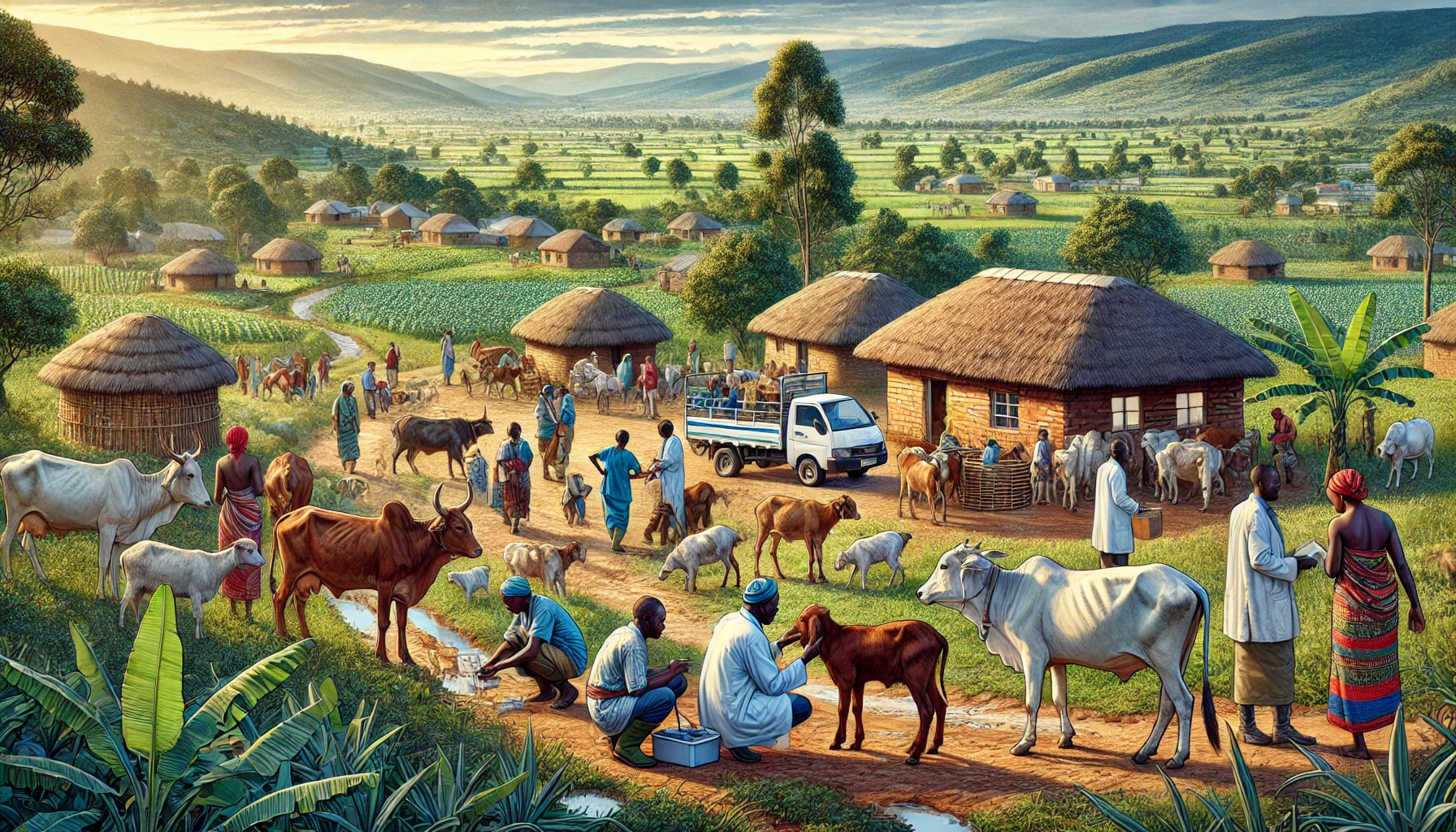Uganda Approves $99.6m IFAD Loan for Livestock Project Amid Heated Debate
Presenting the loan request, the Minister of State for Finance (General Duties), Hon. Henry Musasizi, explained that the ReLiV project aims to strengthen the livelihoods of smallholder livestock farmers.

- Country:
- Uganda
Parliament has approved government’s request to borrow US$99.6 million from the International Fund for Agricultural Development (IFAD) to finance the Resilient Livestock Value Chain Project (ReLiV), which is expected to transform livestock farming across 55 districts in Uganda’s cattle corridor.
The approval came during a plenary sitting on Tuesday, 9 September 2025, chaired by Speaker Anita Among, following spirited debate among lawmakers over the project’s design, expenditure priorities, and urgency.
Project Goals and Beneficiaries
Presenting the loan request, the Minister of State for Finance (General Duties), Hon. Henry Musasizi, explained that the ReLiV project aims to strengthen the livelihoods of smallholder livestock farmers.
“The goal of the project is to contribute to improved livelihoods of smallholder livestock farmers in Uganda. The project development objective is to enhance income, nutrition and resilience of smallholder dairy and beef producers,” Musasizi said.
According to the ministry, the programme will directly benefit 400,000 households while indirectly reaching an estimated 20 million people through its various components. The project will deliberately target inclusivity, with a minimum of 40% women and 25% youth among beneficiaries.
The 55 districts earmarked for the programme were selected based on high levels of poverty, malnutrition, and food insecurity, making them priority areas for agricultural resilience interventions.
Committee Approval With Reservations
The Committee on National Economy, chaired by Hon. John Bosco Ikojo, recommended approval of the loan but flagged several concerns. The committee suggested renegotiating parts of the financing structure to channel more funds into farmer-focused activities rather than consumptive expenditures.
“The loan should be re-negotiated to move resources from consumptive items to acquisition of goods, services and inputs, as well as equipment and materials,” Ikojo said. He criticised the allocation of Shs600 million for vehicle purchases, arguing such expenses do not directly benefit farmers.
The committee also noted that lawmakers had limited time to scrutinise the financing terms, even though IFAD’s concessional loan offered highly favourable conditions, including zero interest and a 50-year repayment period.
Opposition Concerns and Criticism
Some MPs opposed the loan altogether. Hon. Ibrahim Ssemujju (FDC, Kira Municipality) warned against rubber-stamping borrowing requests. “With the proposals that the committee has made, they have left us with no options but to say no to this loan request. I think they are only polite not to make government look bad,” he argued.
Hon. Muhammad Muwanga Kivumbi (NUP, Butambala County) questioned whether ordinary farmers would benefit. He pointed out that US$59 million of the US$99 million is earmarked for projects under the National Agricultural Research Organisation (NARO) and Kawanda Agricultural Research Institute, institutions often criticised for focusing on elite-level programmes.
“You do not see a farmer, you only see government ranches being financed. So, who is benefiting from this loan?” he asked. He also criticised the allocation of US$8 million for project management, saying it risked becoming a top-heavy scheme benefitting administrators rather than farmers.
Government Defends the Loan
Defending the urgency of approval, Musasizi told MPs that the loan agreement must be signed by 12 September 2025 to remain valid. He reassured the House that the financing terms were among the most concessional Uganda had accessed in recent years.
“To allay Hon. Ssemujju’s fears, I would like to clarify that this loan has the best terms. The interest rate is zero and the repayment period is 50 years,” Musasizi said.
He further argued that the project’s design balances direct farmer support with investment in national research institutions to build resilience in the livestock value chain.
Broader Context: Livestock and Economic Growth
The livestock sector remains a cornerstone of Uganda’s rural economy, providing food security, employment, and income for millions of households. However, it faces persistent challenges including climate shocks, disease outbreaks, and underdeveloped value chains.
Government has increasingly turned to concessional loans to finance agricultural transformation projects. Supporters of the ReLiV project argue that investment in dairy and beef production could help reduce poverty, strengthen nutrition outcomes, and contribute to national GDP growth.
Critics, however, caution that unless funds are directed toward farmer-level interventions, the loan risks becoming another case of elite capture, leaving smallholders with little tangible benefit.
Next Steps
With Parliament’s approval, government will proceed to finalise the financing agreement with IFAD. Lawmakers are expected to maintain oversight over implementation to ensure accountability and alignment with the project’s objectives.
As Uganda continues to balance borrowing with development priorities, the ReLiV project is set to be a test case for how effectively concessional loans can drive inclusive agricultural transformation.










